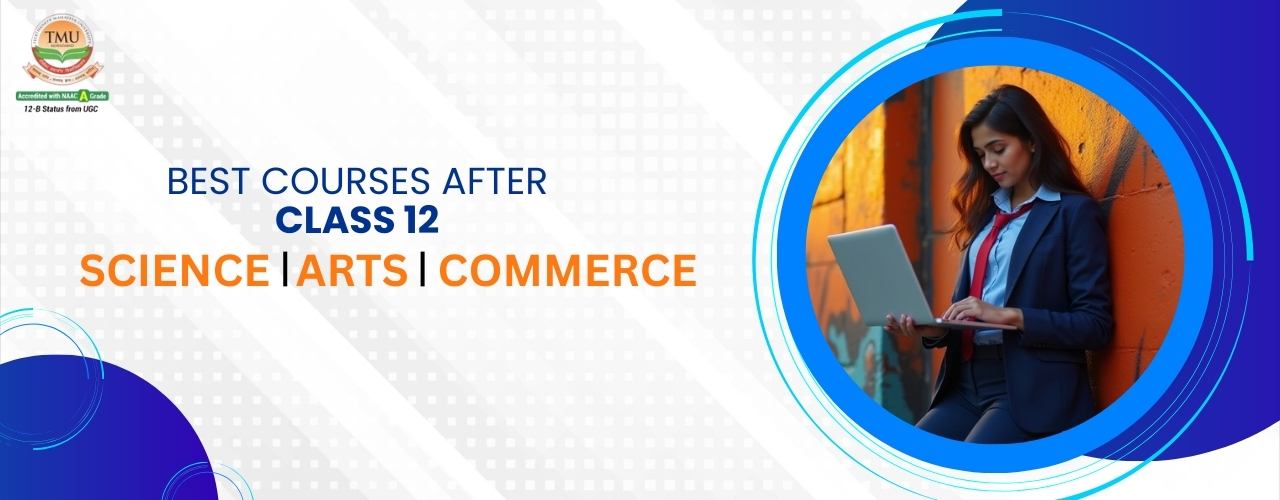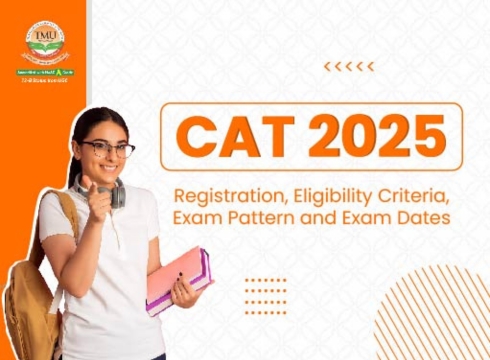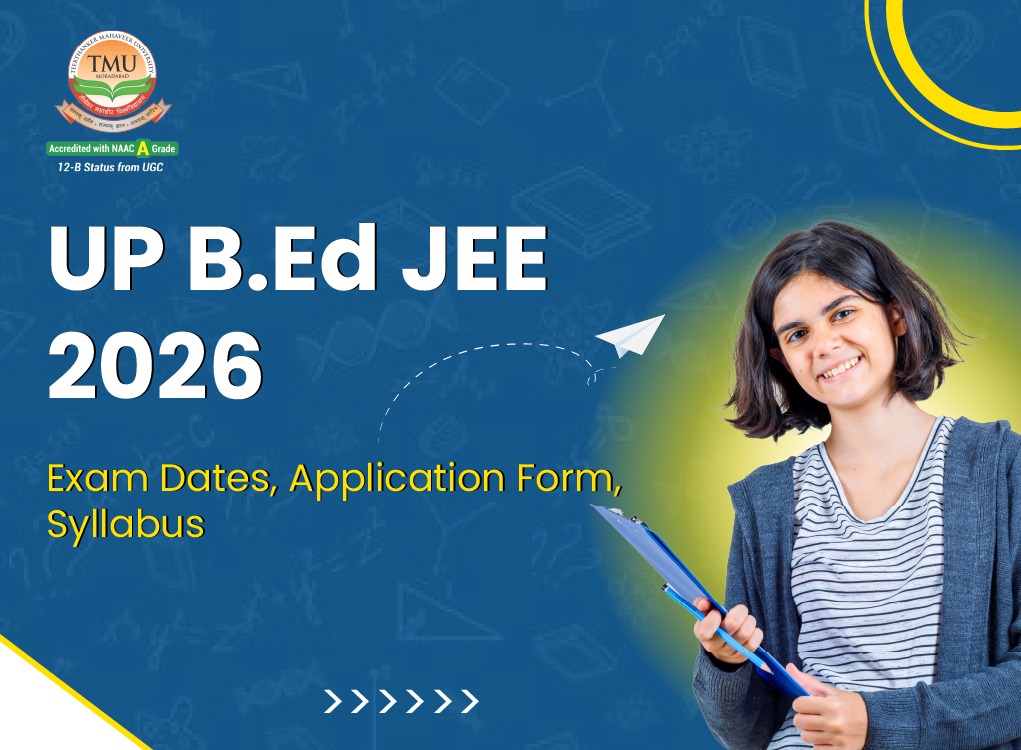Best Courses After Class 12: Science, Arts, and Commerce
Table of Contents
Finishing Class 12 is like standing at a major crossroads in life. You’ve spent years following a set curriculum, but now comes the big question: what next? Whether you're from the Science, Commerce, or Arts stream, choosing the right course after Class 12 is crucial for building a successful career. The decision isn’t just about getting a degree—it’s about aligning your passion with market demand and future opportunities.
Why is this decision so crucial? Because your next step could determine whether you're walking into a job-rich future, going abroad for higher studies, or even launching your own startup. With countless options available, students often feel overwhelmed. Some are driven by family expectations, while others are swayed by peer choices or popular trends. However, a smart decision will consider personal interest, skills, and career potential.
This guide is your map through this maze. We'll walk you through the best courses available in Science, Commerce, and Arts, help you weigh the pros and cons, and give you detailed insights into each career path. So, buckle up—we’re about to decode the future!
Courses After Class 12 – A Stream-wise Guide
Not all courses are created equal—and more importantly, not all courses are meant for everyone. That’s why it’s best to explore career options based on your stream. Whether you chose Science, Commerce, or Arts in your higher secondary classes, that decision was likely influenced by your interests, aptitude, or perhaps even parental advice. Now, it’s time to deepen that journey with relevant course options that match your educational foundation.
Stream-wise categorization helps avoid confusion. For example, if you’re a Science student, you probably have strong analytical skills and a base in subjects like Physics, Chemistry, or Biology. Commerce students tend to be more business-savvy and logical, while Arts students are known for creativity, expression, and critical thinking.
What’s more, this classification isn’t rigid. These days, cross-stream shifts are totally possible. A Commerce student can pursue Law. A Science student might opt for a BBA. Thanks to emerging fields and new interdisciplinary courses, you have more flexibility than ever before.
Let’s dive deep into each stream and explore what they offer, starting with Science.
Teerthanker Mahaveer University
Apply for Admission
Click Here To Apply for Admission
Best Courses After Class 12 Science
The Science stream is like a buffet—loaded with options. Whether you love machines, the human body, coding, or chemicals, Science has something for you. Generally, students in this stream opt for either the PCM (Physics, Chemistry, Math) or PCB (Physics, Chemistry, Biology) combination, which determines their primary direction—engineering or medical.
Engineering Courses
If you took the PCM route, engineering is the go-to choice. The Bachelor of Technology (B.Tech) or Bachelor of Engineering (B.E.) are 4-year professional degrees. With India being a tech hub, engineering continues to be in high demand. The best part? There are countless branches to choose from:
- Computer Science Engineering (CSE): Most popular due to IT job demand.
- Mechanical Engineering: Ideal for machine enthusiasts.
- Civil Engineering: For those who dream of building structures.
- Electrical/Electronics Engineering: Focused on circuits, power, and gadgets.
- AI and Data Science: Rising stars in the tech domain.
Entry is usually through competitive exams like JEE Main and JEE Advanced for IITs, NITs, and other top institutes. Private colleges also conduct their own entrance exams or accept board marks.
Career Opportunities: Software developer, AI engineer, mechanical designer, data analyst, civil contractor.
Average Salary Range: ₹3.5 to ₹10 LPA (can go higher in tech roles).
Medical Courses
For those who studied PCB, the medical field opens a whole new world of possibilities. The most sought-after course is MBBS (Bachelor of Medicine and Bachelor of Surgery), but that’s just the tip of the iceberg.
- BDS (Dental Surgery): Focused on dental science.
- BAMS (Ayurveda): For those inclined toward traditional medicine.
- BHMS (Homeopathy): Growing relevance in natural treatments.
- BPT (Physiotherapy): Increasing demand in sports and rehabilitation.
- B.Sc. Nursing: A stable and noble career choice.
NEET is the primary entrance exam for most medical courses in India. The competition is fierce, but the rewards are massive.
Career Opportunities: Doctor, dentist, surgeon, therapist, nurse, pharmacist.
Average Salary Range: ₹4 to ₹12 LPA (specialists can earn significantly more)
Pure Science Courses
Not everyone wants to become an engineer or doctor. If you’re more research-oriented, B.Sc. courses in core science subjects might be your calling.
Popular options include:
- B.Sc. in Physics/Chemistry/Mathematics
- B.Sc. in Microbiology, Genetics, or Biotechnology
- B.Sc. in Computer Science/IT
These courses often lead to careers in research, academia, or even corporate sectors like data analysis and quality control.
Career Opportunities: Research scientist, lab technician, data analyst, professor.
Average Salary Range: ₹3 to ₹6 LPA (higher with advanced degrees like M.Sc. or Ph.D.)
Other Professional Science Courses
Some courses blend Science with tech or healthcare in unique ways. For example:
- BCA (Bachelor in Computer Applications): Ideal for software and app development.
- B.Pharm (Pharmacy): For careers in pharma companies, hospitals, and research labs.
- Environmental Science: In high demand due to climate change awareness.
- Forensic Science: Popularized by crime shows, but deeply scientific and serious in real life.
These offer diverse career options and often have global scope.
Average Salary Range: ₹3 to ₹7 LPA
Best Courses After Class 12 Commerce
The Commerce stream is all about business, finance, and economics. It’s a fantastic choice for students who are analytical, number-savvy, and interested in understanding how money flows through systems. Contrary to the old myth that Commerce is "easier" than Science, the truth is it offers some of the most competitive and rewarding career paths in India and globally.
From professional degrees to creative entrepreneurial ventures, Commerce students can go in multiple directions—finance, business management, law, taxation, accountancy, or even marketing. Let’s explore the best career options you can pursue after Class 12 Commerce.
Professional Commerce Courses
One of the most appealing aspects of the Commerce stream is its professional course lineup. These are specialized programs that lead directly to high-paying, respected careers:
- B.Com (Bachelor of Commerce): A foundational 3-year degree. You can specialize in subjects like Accounting, Finance, Taxation, or E-commerce.
- BBA (Bachelor of Business Administration): A popular choice among aspiring business leaders and entrepreneurs.
- CA (Chartered Accountancy): Requires clearing three levels—CA Foundation, Intermediate, and Final—plus an articleship.
- CS (Company Secretary): Focused on corporate governance, laws, and compliance.
- CMA (Cost and Management Accountant): Specializes in cost accounting, financial planning, and analysis.
These courses are respected not just in India but around the world. They’re rigorous and require dedication, but they open doors to careers in multinational firms, public sector undertakings, and even C-suite executive roles.
Career Opportunities: Accountant, business analyst, company secretary, finance manager, auditor.
Average Salary Range: ₹4 to ₹15 LPA (CAs and CMAs often start at higher packages).
Finance and Management Courses
If you’re inclined toward leadership, investment, or operations management, these courses are excellent options:
- BMS (Bachelor of Management Studies): Designed for students who want to understand business management, marketing, and HR.
- BFIA (Bachelor of Financial and Investment Analysis): A niche course that targets finance and investment banking careers.
- BBE (Bachelor of Business Economics): A solid blend of economics and business strategy.
These programs are generally offered by reputed universities and sometimes require entrance exams. They offer a well-rounded education, often including internships, workshops, and case studies.
Career Opportunities: Investment banker, business consultant, marketing manager, financial analyst.
Average Salary Range: ₹4 to ₹10 LPA (more in metro cities and MNCs).
Law and Economics Related Courses
Law and economics are great add-ons or alternative routes for Commerce students. These options let you dive deeper into the legal or theoretical frameworks of businesses and markets:
- Integrated Law Programs (BBA LLB or B.Com LLB): A 5-year course combining law and commerce.
- BA in Economics: Offered in both Arts and Commerce streams depending on the university. It's analytical, data-driven, and policy-oriented.
Law, especially corporate law, is a booming field with ample opportunities in law firms, MNCs, and judicial services. Economics, on the other hand, can lead you into policymaking, international relations, or research roles.
Career Opportunities: Lawyer, economist, legal advisor, policy analyst.
Average Salary Range: ₹5 to ₹12 LPA (with growth as you gain experience and specialization).
Best Courses After Class 12 Arts
The Arts stream has evolved tremendously. It’s no longer restricted to teaching or civil services. Today, Arts offers a huge range of creative, analytical, and professional career options. If you’re passionate about storytelling, psychology, languages, history, or social issues, this stream might just be your golden ticket.
From literature and law to design and journalism, the Arts stream is versatile and full of potential. Let’s break down the most promising options you have after Class 12 Arts.
Humanities and Social Sciences Courses
These courses form the backbone of Arts education and have long-lasting value in academia, government, research, and consultancy roles.
- BA in Psychology/Sociology/Political Science/History/Geography: Traditional yet powerful degrees with practical applications in civil services, research, teaching, and social work.
- BA in Philosophy or English Literature: Helps develop critical thinking, writing, and interpretive skills.
Students can pursue a Master’s and even go for Ph.D. or teaching roles. Many also prepare for UPSC, SSC, or similar exams while studying these courses.
Career Opportunities: Psychologist, social worker, historian, professor, civil servant.
Average Salary Range: ₹3 to ₹8 LPA (higher with postgraduate qualifications).
Fine Arts and Design Courses
This category is for the creatively gifted. If you love sketching, painting, designing clothes, or animating stories, these programs are ideal:
- BFA (Bachelor of Fine Arts): Focuses on painting, sculpture, and visual arts.
- Fashion Designing: Offered by institutes like NIFT, this course prepares you for the fashion industry.
- Interior Design: Learn to create functional and aesthetically pleasing spaces.
- Animation and Multimedia: Perfect for those who want to work in movies, games, or web content.
These fields are booming thanks to the explosion of digital media, advertising, and branding. Creativity is the currency here.
Career Opportunities: Graphic designer, animator, fashion designer, interior designer.
Average Salary Range: ₹4 to ₹10 LPA (depends heavily on skills and portfolio).
Mass Communication and Media Courses
Love storytelling, news, or film? Mass Communication might be your path.
- BJMC (Bachelor of Journalism and Mass Communication): A 3-year course that trains you in media ethics, reporting, editing, and broadcasting.
- BA in Mass Media or Communication: Focuses on public relations, content writing, and digital media.
The digital boom has led to a high demand for skilled communicators. You can work in TV, digital media, advertising agencies, content companies, or even start your own YouTube channel.
Career Opportunities: Journalist, content writer, video editor, PR executive, media planner.
Average Salary Range: ₹3 to ₹9 LPA (higher with experience or in digital domains).
Trending and Emerging Courses for All Streams
In today’s fast-changing world, sticking only to traditional courses might not be enough. Industries are evolving, new technologies are reshaping career landscapes, and businesses are looking for professionals with specialized, modern skills. This is where trending and emerging courses come into play. These courses aren't tied to just one stream—whether you're from Science, Commerce, or Arts, you can pursue them based on your interests and skills.
Let’s look at some of the most popular emerging fields that are attracting students from all streams:
- Data Science and Analytics: Data is the new oil. Companies are investing heavily in professionals who can collect, analyze, and interpret data to make strategic decisions. Courses in Data Science, often offered as B.Sc. Data Science, BCA with Data Analytics, or even certificate programs, are in high demand.
- Artificial Intelligence and Machine Learning: These are advanced fields within tech, perfect for students with logical thinking and a knack for coding. Courses range from B.Tech in AI to short-term certifications.
- Digital Marketing: Every business is online, and they need experts who can promote them on Google, Instagram, and YouTube. A favorite among Arts and Commerce students.
- UI/UX Design: With more apps and websites emerging daily, the need for good design has exploded. Courses in UI/UX are available at design schools and online platforms.
- Ethical Hacking and Cybersecurity: As online threats increase, cybersecurity experts are needed more than ever. These roles are vital and well-paid.
These courses can be pursued through full-time degrees, diplomas, or even online platforms like Coursera, Udemy, and Skillshare.
Career Opportunities: Data analyst, digital marketer, UX designer, cybersecurity analyst, AI engineer.
Average Salary Range: ₹5 to ₹20 LPA depending on skill and experience.
Vocational and Skill-Based Courses
Not everyone wants a 3- or 4-year degree right after high school. Some students prefer learning practical skills that lead directly to jobs. That’s where vocational and skill-based courses come in. These are short-term programs, typically ranging from 6 months to 2 years, and they offer job-ready training in specific industries.
Here are some popular options:
- Diploma in Graphic Designing
- Diploma in Web Development
- Certificate in Photography
- Diploma in Hotel Management
- Air Hostess/Cabin Crew Training
- Diploma in Event Management
- ITI Courses (Industrial Training Institutes) in electrician, plumbing, welding, etc.
These courses are cost-effective and provide good returns on investment. They’re best for students who want to start earning early or gain a hands-on edge before pursuing higher studies.
Career Opportunities: Technician, hotel staff, event coordinator, designer, airline crew.
Average Salary Range: ₹2 to ₹6 LPA (entry-level, can increase with experience).
Government Job Oriented Courses
Many students in India aspire to work in the government sector due to job security, good pay, and social prestige. After Class 12, several courses and exams can help you get there. Some require you to graduate first, but early preparation pays off.
Top options include:
- NDA (National Defence Academy): For those aiming to join the Army, Navy, or Air Force.
- SSC CHSL (Combined Higher Secondary Level): For clerical and assistant roles in central govt. departments.
- Banking Preparation: Though most bank exams require a degree, starting preparation after Class 12 gives an advantage.
- Railway Recruitment Exams (RRB): Multiple job profiles available, like ticket collector, clerk, etc.
- State Police and Constable Exams: These vary by state and require physical fitness and written tests.
These roles require discipline and hard work but offer solid career growth and benefits.
Career Opportunities: Defence officer, railway staff, bank clerk, SSC officer.
Average Salary Range: ₹3 to ₹8 LPA depending on position and promotion.
Factors to Consider Before Choosing a Course
With so many courses to choose from, how do you know which one’s right for you? The key is to evaluate multiple aspects—not just peer pressure or trends. Here’s a checklist to help you make a smart decision:
- Interest and Passion: Do you enjoy what the course involves? Can you see yourself doing it long term?
- Skills and Aptitude: Are you good at subjects the course focuses on? Aptitude tests can help you figure this out.
- Job Market Demand: Will the course help you land a good job? Research job trends in your desired field.
- Salary Potential: Look at average salary packages. Is the career financially viable?
- Course Duration and Cost: Can you commit to a long program? Do you have the budget?
- Global Opportunities: Does the course open doors internationally?
- Further Study Options: Does the course lead smoothly into a Master's or professional upgrade?
A good strategy is to consult a career counselor, talk to industry professionals, or even take up internships to explore the field before committing.
List of High Paying Courses After 12th
Let’s be honest—salary matters. Everyone wants to invest time and money in a course that pays off well. Here's a table of high-paying courses you can pursue after Class 12, along with average starting salaries:
| Course | Stream | Average Starting Salary (INR) |
| MBBS | Science | ₹6 – ₹12 LPA |
| B.Tech (CSE, AI) | Science | ₹5 – ₹12 LPA |
| CA (Chartered Accountant) | Commerce | ₹6 – ₹15 LPA |
| BBA + MBA (Dual Degree) | Commerce | ₹6 – ₹10 LPA |
| B.Des (Design Courses) | Arts | ₹5 – ₹9 LPA |
| BJMC | Arts | ₹3 – ₹7 LPA |
| B.Sc Data Science | All Streams | ₹6 – ₹15 LPA |
| B.Pharm | Science | ₹3 – ₹6 LPA |
| NDA (Defence) | All Streams | ₹8 – ₹12 LPA (with perks) |
| UI/UX, Digital Marketing | All Streams | ₹4 – ₹10 LPA |
These figures are averages and can shoot up with experience, certifications, or a strong portfolio.
Courses with Global Opportunities
In our increasingly connected world, studying a course that has international recognition can give your career a significant boost. Many students dream of working abroad, and certain courses make that pathway much smoother. These globally oriented programs prepare you to meet international standards and often open doors in countries like the USA, UK, Canada, Australia, and Germany.
Here are some top courses after Class 12 with great global potential:
- Engineering (B.Tech/B.E.): Recognized worldwide, especially in fields like Computer Science, Mechanical, and Electrical. Graduates often pursue MS abroad.
- MBBS (and other medical degrees): Indian doctors are in high demand, especially after clearing exams like USMLE (USA), PLAB (UK), or AMC (Australia).
- BBA + MBA (International Business): These programs often include exchange semesters or international internships.
- Law (Integrated LLB with International Law focus): Many Indian law schools offer modules that align with international legal systems.
- Hospitality Management: Countries like Switzerland, France, and Singapore offer top-notch degrees that are respected globally.
- Design & Animation: Students often go to countries like Canada and the UK to work in media, film, or fashion.
To make the most of global opportunities, you’ll need to clear language proficiency exams like IELTS, TOEFL, or GRE, depending on the country and course. It also helps to pick a course accredited by global education bodies or linked with foreign universities.
Career Opportunities Abroad: Engineer, medical practitioner, hotel manager, international lawyer, animator, business consultant.
Average International Salaries: ₹30 LPA and above depending on the country and role.
Online Courses and Distance Learning
The digital revolution has transformed education. Now, you don’t need to move cities or countries to learn from the world’s best universities. Online learning and distance education offer a flexible, affordable, and equally valuable alternative to traditional classroom courses.
Popular online courses after Class 12 include:
- Digital Marketing
- Programming (Python, Java, Web Development)
- Graphic Design and Animation
- Business Analytics and Excel Mastery
- Psychology and Personal Development
Distance learning is especially useful for students who want to study while working, managing family responsibilities, or pursuing competitive exam prep.
Advantages:
- Learn at your own pace
- Save money on commuting/lodging
- Access global faculty and resources
- Combine with internships or freelance work
Career Opportunities: Freelancers, remote workers, content creators, marketers, software developers.
Average Salary Range: ₹3 to ₹8 LPA (entry level; scales up fast with a strong portfolio)
Career Guidance Tips for Students After 12th
Feeling confused or overwhelmed after Class 12 is normal. With so many courses, colleges, and career paths available, it’s easy to get lost. That’s why proper guidance at this stage is invaluable. Here are some practical tips to help you make the right choice:
- Know Yourself: What subjects do you enjoy? Are you a problem-solver, communicator, or artist at heart?
- Take Aptitude and Interest Tests: Use career tests available online or through school counselors to understand your strengths.
- Research Deeply: Don’t just go by trends or peer pressure. Use trusted websites, talk to alumni, or consult experts.
- Attend Career Counseling: Many schools and private institutions offer guidance from certified counselors.
- Shadow a Professional: Spend a day or two with someone in the field you’re considering. It offers a real-world perspective.
- Understand Future Scope: Look beyond today’s job market. Will your chosen field still be relevant 10 years from now?
- Stay Open to Change: Your first course doesn’t lock your life. Many successful professionals pivoted later on.
Remember: You’re not making a final decision—you’re choosing your next step. Stay curious, be adaptable, and keep learning.
Top Courses After 12th
Here’s a quick comparison of popular courses across all three streams for easy reference:
| Stream | Course | Duration | Entrance Required | Career Scope | Avg. Salary (INR) |
| Science | MBBS | 5.5 yrs | NEET | Doctor, Surgeon | ₹8 – ₹12 LPA |
| Science | B.Tech (CSE/AI) | 4 yrs | JEE, State Exams | Software Dev, AI Engineer | ₹6 – ₹15 LPA |
| Commerce | CA | 4-5 yrs | CA Foundation | Chartered Accountant | ₹7 – ₹20 LPA |
| Commerce | BBA + MBA | 5 yrs | UG/PG entrance | Manager, Consultant | ₹6 – ₹12 LPA |
| Arts | BJMC | 3 yrs | University-based | Journalist, Editor | ₹3 – ₹7 LPA |
| Arts | BFA | 3-4 yrs | Portfolio/Entrance | Designer, Illustrator | ₹4 – ₹10 LPA |
| All Streams | BCA | 3 yrs | University-based | Software Dev, Tester | ₹4 – ₹8 LPA |
| All Streams | Digital Marketing | 6 mo–1yr | No (certifications) | Marketer, Brand Manager | ₹4 – ₹10 LPA |
| All Streams | B.Sc Data Science | 3 yrs | University-based | Data Analyst, ML Engineer | ₹6 – ₹15 LPA |
Conclusion
Choosing the best course after Class 12 is one of the most defining decisions of your life. It's not about picking the "most popular" or "highest paying" course—it's about aligning your strengths, interests, and career goals with the opportunities available. Whether you’re from Science, Commerce, or Arts, there’s no shortage of excellent pathways ahead.
What matters most is to stay informed, explore all your options, and make a choice that excites you. With the right mindset, proper guidance, and a bit of courage, your post-12th journey can lead to a fulfilling and successful future.
FAQs
Q1: Which course is best for after 12th?
Ans: The best course after 12th depends on your stream and interests:
- Science: MBBS, B.Tech, B.Sc in Data Science
- Commerce: CA, BBA + MBA, B.Com (Hons)
- Arts: BA in Psychology, BJMC, BFA
Choose based on your passion, career goals, and job market demand.
Q2. Which is the highest paying course after 12th?
Ans. Courses like MBBS, B.Tech (Computer Science), CA, and B.Sc in Data Science are among the highest paying, with potential salaries exceeding ₹10–15 LPA.
Q3. Can I switch streams after Class 12?
Ans. Yes, many interdisciplinary and new-age courses allow flexibility. For example, a science student can pursue law or a commerce student can take up design or journalism.
Q4. What are some good career options for average students?
Ans. Vocational courses, skill-based diplomas, BBA, B.Com, BCA, and even content creation or digital marketing can be great options for average scorers.
Q5. Are online courses valid for jobs?
Ans. Yes, especially if taken from reputed platforms or universities. Many companies value skills over degrees today, especially in tech, design, and marketing.















